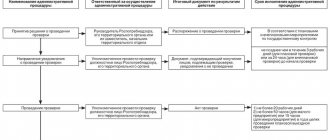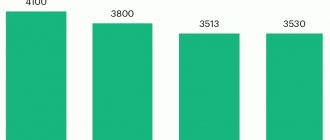What payment is guaranteed by law?
If an employee goes on a business trip, the employer, that is, the head of a budgetary institution, must provide such a specialist with compensation for his expenses.
Such expenses are associated not only with the purchase of tickets or renting a hotel room. Additionally, the payment for a business trip includes expenses that are aimed at compensating for the inconveniences associated with living outside the place of the main residence, that is, daily allowances. This is not a definitive list of guarantees. According to Article 168 of the Labor Code of the Russian Federation, the employer must guarantee the preservation of the workplace and payment according to the average earnings of the business trip.
Composition of travel expenses:
- Average salary for days spent on a business trip. Calculated based on the average for the 12 months preceding the month of business trip.
- Daily allowance. The organization must have a limit for payment. There are no legal restrictions; the size depends on the financial capabilities of the enterprise. The amount depends on the number of days of the business trip.
- Fare. Includes payment for tickets, commissions, insurance, and other types of expenses. For example, compensation for fuel and lubricants for an employee using a personal car on a business trip.
- Living expenses. It is acceptable to include payment for a hotel room, payment for a bed or room in a dormitory, or payment for renting an apartment on a daily basis.
- Other expenses agreed with the employer. For example, an employee uses personal transport for a work trip. The cost of maintaining the car while on the road can be paid by the employer.
IMPORTANT!
Not all trips and trips of specialists can be classified as business trips. The article “Which trips are considered a business trip” will help you understand the situation.
Travel expenses must be reimbursed
Any business trip involves expenses. Since an employee is sent on a business trip at the initiative of the organization, the expenses incurred by him must be reimbursed. In particular, you need to compensate for:
- travel expenses;
- housing rental costs;
- daily allowance – additional expenses associated with living outside your permanent place of residence;
- other expenses incurred on a business trip in agreement with the administration.
Daily allowance is a compensation payment to an employee related to staying outside his place of permanent residence. In general, it is logical to compensate the employee for the costs caused by living in an unusual place in the interests of the employer. For example, the cost of organizing meals and meeting other daily needs.
For the purpose of withholding alimony, daily allowances are classified as compensation payments related to business trips (Article 168 of the Labor Code of the Russian Federation, subparagraph “a”, paragraph 8, part 1, article 101 of the Federal Law of October 2, 2007 No. 229-FZ, subparagraph “p” clause 2 of the List, approved by Decree of the Government of the Russian Federation dated July 18, 1996 No. 841). This means that alimony is not taken from the daily allowance. Moreover, this rule is valid for any amount of daily payments, including for daily allowances in excess of the norm (for more details, see “Alimony cannot be withheld from daily allowances”).
Let us remind you that daily allowances up to 700 rubles/day for business trips within the Russian Federation and 2500 rubles/day for business trips abroad are not subject to personal income tax and insurance contributions (paragraph 10, paragraph 3, article 217, paragraph 2, article 422 of the Tax Code of the Russian Federation).
How is a business trip paid in 2020?
All expenses of an employee on a business trip must be compensated. But legislators have made a number of recommendations to limit such expenses. What does it mean? A specialist may qualify for compensation, but not more than the established maximum amount of expenses. This rule applies mainly to daily allowances. But some government agencies have also limited spending on hotel accommodations.
The institution determines and regulates limits independently, based on its own financial capabilities. For example, for some federal civil servants the maximum daily allowance is 100 rubles per day, and the standard payment for a hotel room is 1000 rubles per day, while in commercial firms there are no restrictions at all.
In accordance with Art. 168 (Labor Code - business trips) payment (its amount) is not limited. This is solely the decision of the institution. Such limits must be approved by a separate order or local management order.
Travel expenses are paid in advance. Upon return, the specialist draws up an advance report and documents the costs. Attaches invoices, checks, tickets, contracts and receipts to the report. The accountant or responsible person checks the statements and then submits them to management for approval.
Read about the procedure for processing expenses in the separate material “How to process travel expenses in 2020.”
Composition of travel expenses
An employer who sends an employee to work outside the organization is obliged to pay the employee the associated expenses, namely:
— pay wages for the entire duration of the business trip (i.e. pay for all working days when the employee was on a business trip and en route);
— pay for travel to the place of arrival and back (travel on all types of transport, with the exception of taxis, commission for booking tickets, insurance premium for passenger insurance);
— pay the employee’s housing expenses (cost of a hotel room or apartment rental);
— pay daily allowance (based on each business trip day and travel time. The exception is the case when the employee has a one-day business trip or the employee has the opportunity to return home every day);
This is important to know: Payments by court decision: deadlines
- compensate for additional expenses that the posted employee incurred in agreement with management.
For example, the cost of participation in business events (entertainment expenses), voluntary personal insurance for the duration of a business trip, car rental at the place of business trip, VIP lounge services at airports and train stations, the cost of travel on the Aeroexpress and taxi, the cost of obtaining a visa for business trips abroad.
If all these expenses are confirmed by documents, they can be taken into account when calculating income tax and tax under the simplified tax system.
Calculation of average earnings for travel allowances
To correctly calculate the amount of payment for the period of an employee’s business trip, follow the current Government Decree No. 922 of December 24, 2007. We present the basic rules in the form of instructions:
- We determine the billing period. For such payments, the calculation period is 12 calendar months preceding the month in which the employee is sent on a trip. For example, a business trip in April 2020, therefore, the billing period: February 2020 - March 2020.
- We calculate the basis for the calculation. We collect information about all accruals and income of the specialist. Then we exclude payments that are named in paragraph 5 of Resolution No. 92. For example, sick leave benefits, maternity leave and similar cases.
- We calculate the number of days actually worked. The indicator does not include days that fell during illness and vacation, as well as other periods that fell on excluded payments (Article 5 of Resolution No. 922).
- Now we divide the calculation base into the days actually worked. The resulting amount of average daily earnings is due to the specialist for each day he is on a business trip.
Labor Code: business trips, payment
How are employee travel days paid: from average earnings or is the salary simply issued? As Art. 167 of the Labor Code of the Russian Federation, when an employee is sent on a trip, he is guaranteed the preservation of his job and average earnings (clause 9 of Regulation No. 749 of October 13, 2008), as well as reimbursement of expenses. Therefore, during his stay on a business trip, he should be paid such earnings.
This is important to know: Payment under the GPC agreement: accrual and payment
Payment for business trips is usually made on payday. Accounting calculates the average amount that an employee could receive at his place of employment, and then issues it along with an advance or monthly payment.
Calculation example
Travelers Eduard Antipovich was sent on business for 20 calendar days in April 2020.
Its calculated data for the period February 2020 – March 2020:
| Indicators | Periods, days | Charges, rubles |
| Total number of days | 254 | 900 000,00 |
| Sick leave | 41 | 150 000,00 |
| Annual leave | 28 | 90 000,00 |
| Total | 185 | 660 000,00 |
Average daily earnings: 660,000 / 185 = 3,567.57 rubles.
Payment for a business trip based on average earnings: 3567.57 × 20 days. = 71,351.40 rubles.
For information about which accounting entries to reflect these transactions in accounting, read the article “How to keep records of travel expenses in a budget organization.”
How is payment made if an employee gets sick on a business trip?
Payment of sick leave does not depend on whether the employee was on a business trip or not. You must pay for all days of incapacity for work. It should be taken into account that:
- daily allowances and housing rental expenses must be paid for all days of the business trip. The cost of housing is not paid only if the employee was in a hospital;
- During the period of incapacity for work, the average salary is not paid, but for the remaining days up to the date of the onset of incapacity for work it must be paid.
This is important to know: Compensation for a garage during demolition in St. Petersburg
Overtime work on a business trip
The question of how overtime hours are paid on a business trip is not regulated at the legislative level. Overtime work is considered to be work outside the normal working hours. However, when employees are sent on business, records of the time they worked during the trip are not kept. Consequently, there are no standards for determining normal working hours on a business trip.
The issue also concerns forms of payment. After all, during the days of a business trip, an employee receives an average salary. This is a guaranteed type of compensation, but not a type of remuneration. Consequently, the provisions of Article 99 of the Labor Code of the Russian Federation are inapplicable in such a situation. But what should an employer do, since not one of his subordinates will agree to work for free, especially beyond the established standards.
Procedure:
- Set standards. The procedure and amount of overtime payment should be specified in the regulations on business trips. For example, establish that for the first two hours of overtime, payment is 1.5 times the average earnings. For the rest of the overtime work - 2 times the amount. But additional payments may be higher, depending on the financial capabilities of the company.
- Obtain the employee's consent. To do this, send a written notice to the employee with a proposal for overtime work. In your application, be sure to include information about the increased payment. There is no unified proposal form; prepare a document in any form.
- Place an order. Having received the written consent of the subordinate, it is necessary to issue an order to engage in overtime work during the business trip.
- Ensure time is tracked. This is necessary for payment in full. Use a unified form of working time sheet or develop and approve your own, which the employee will fill out to record overtime and overtime.
IMPORTANT!
If duties on a business trip occur at night, then similar actions must be taken. Set the amount of payment in the business trip regulations.
Please note that if travel time falls during the night hours, from 00:00 to 06:00, then no additional payments or surcharges are due. For example, if an employee returns on a night flight, there is no need to pay for night hours.
By what standards are travel expenses reimbursed?
The organization itself establishes the standards and procedure for reimbursing travel expenses to an employee both for business trips within the Russian Federation and abroad in a local regulatory act, for example, in the “Regulations on Business Travel.”
The legislation establishes a standard only for the amount of daily allowance that is not subject to personal income tax, namely, the following daily allowances are not subject to personal income tax:
— for each day of a business trip in Russia in the amount of 700 rubles;
— for each day of a business trip abroad in the amount of 2,500 rubles.
All other travel expenses are taken into account when calculating income tax, tax under the simplified tax system in the amount in which they are established in the local regulatory act of the organization.
Business trips on weekends and holidays
How days on a business trip that fall on holidays and weekends are paid depends on whether the subordinate worked or not.
If an employee did not work on a weekend or holiday, then there is no need to pay for the days according to average earnings. For example, a specialist is sent on a business trip for 10 days, including 1 holiday and 2 days off. Calculate the average earnings only for the 7 working days of your stay on a business trip.
IMPORTANT!
You pay per diem for all days, regardless of whether the specialist worked or not. Include in the calculation working days, holidays, weekends, travel and downtime days, departure and return days.
If an employee worked on a weekend or holiday while on a business trip, then pay for this time in the following amount:
- at least one time from the tariff rate (official salary), if the employee requested additional rest time;
- no less than twice the tariff rate (official salary), if the employee decides to refuse time off.
IMPORTANT!
When calculating payment for work on weekends and holidays, take into account not only the official salary, but also compensation and incentive payments, allowances and additional payments provided for by the current remuneration system. For example, regional coefficients, additional payment for experience, bonus for qualifications.
A similar payment procedure applies if an employee goes on a business trip on a weekend or holiday. Or returns from it. For example, a specialist goes on a trip on May 1. This is a holiday. Therefore, the employer must offer double pay or time off and pay in a single amount.
Daily allowance for a business trip of one day
An interesting situation arises if an employee is forced to go on a business trip lasting a day. In this case, there is a peculiarity of paying per diem. For example, a trip abroad is paid in the amount of fifty percent of the full daily allowance.
At the same time, business trips within the country are less profitable. No daily allowance is accrued for this day. However, it is worth remembering that this is only relevant when the day of departure and arrival coincide. If the departure was at eleven in the evening of the previous day, then the business trip is considered a two-day trip.
Calculation example
Morkovkin Stepan Igorevich was sent on a business trip for 15 days. - from April 17 to May 1 inclusive. He worked for 11 days. (10 on weekdays and 1 on weekends). Average earnings for the billing period are 2000 rubles. The tariff daily rate is 2500 rubles. For work on days off, double pay is due; Morkovkin did not take time off.
Standards for reimbursement of travel allowances by organization:
- daily allowance - 1000 rubles per day;
- travel: tickets - 5000 rubles one way;
- accommodation: hotel - 2000 rubles per day.
The accountant accrued the following travel payments:
- daily allowance: 1000 × 15 days. = 15,000 rubles.
IMPORTANT!
There is a limit for personal income tax on daily allowances. In Russia - 700 rubles per day and 2500 rubles. - abroad. Withhold personal income tax from the difference and charge insurance premiums.
- Personal income tax: 15,000 - (700 × 15 days) × 13% = 585 rubles;
- insurance premiums: 15,000 - (700 × 15 days) × 30.2% = 1359 rubles;
- transportation costs: 5000 × 2 = 10,000 rubles;
- living expenses: 2000 × 14 days. = 28,000 rubles;
- average earnings: 10 workers. days × 2000 rub. = 20,000 rub.;
- payment for work on holidays and weekends: 2500 × 2 size × 2 days. = 10,000 rub.
Why do we pay for two days at an increased rate? After all, the employee only worked on one day off? The fact is that Morkovkin was returning home on the May 1st holiday. He didn't take time off. Therefore, a specialist is entitled to payment of no less than double the tariff rate or official salary, taking into account incentives and compensation allowances.










